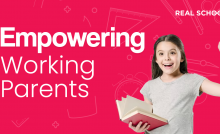Is Online School the Right Fit for Your Child? Let’s Know the Advantages of Online Education for Kids!


Is online school the right fit for your child? Are you confused about starting your kid’s journey in the online school for kids? Do you want to know about online classes for kids? If yes, this article will provide all the knowledge about online education for kids. Let’s start reading the article and give perfect learning and guidance to the kids.
Online School for Kids
Determining whether online school is the right fit for a child depends on various factors, including the child’s learning style, preferences, and specific circumstances. Here are some considerations to help you assess whether online schooling is suitable for your child:
# Learning style: Online schooling requires self-motivation, discipline, and independent learning. If your child is self-directed, enjoys working independently, and can stay focused without constant supervision, online school might be a good fit. However, if your child thrives in a structured environment with face-to-face interaction, a traditional brick-and-mortar school might be more suitable.
# Flexibility: Online school offers flexibility in terms of scheduling and location. If your child has other commitments or needs a flexible learning environment due to health concerns, extracurricular activities, or personal circumstances, online school can provide the necessary flexibility.
# Technical proficiency: Online learning relies on technology, so your child should be comfortable using computers, the internet, and various digital tools. Adequate technical proficiency is essential to navigate online platforms, submit assignments, communicate with teachers, and access learning materials effectively.
# Social interaction: One aspect to consider is the social aspect of education. Online schooling may limit face-to-face interaction with peers, which could impact social development. If your child enjoys socializing and learning through group activities, sports, or discussions, you might want to assess whether online school provides opportunities for socialization.
# Parental involvement: Online schooling often requires more parental involvement compared to traditional schools. Parents may need to assist their child with technical issues, monitor progress, and provide guidance. If you have the time, ability, and willingness to be actively involved in your child’s education, online school can be a viable option.
# Available resources: Consider the availability of resources for online learning. Ensure that your child has a reliable internet connection, suitable devices (computer or tablet), and access to necessary software or learning platforms.
Also Read: Montessori for Children with Special Needs: The Right School for Education
Online Education for Kids
Online education can contribute to a child’s overall development in various ways. While it’s important to strike a balance between online and offline activities, online education can offer several benefits:
# Academic growth: Online educational platforms often provide access to a wide range of courses, subjects, and resources. This allows children to explore diverse topics, pursue their interests, and access educational materials beyond what might be available in a traditional classroom. Online education can also provide personalized learning experiences tailored to a child’s specific needs and pace.
# Flexibility and convenience: Online education offers flexibility in terms of scheduling and location. Children can access learning materials and participate in lessons from anywhere with an internet connection, which can be especially beneficial for those with unique circumstances or travel requirements. This flexibility allows children to manage their time effectively, engage in extracurricular activities, or pursue other interests alongside their education.
# Technological literacy: By engaging with online education, children develop important digital literacy skills. They learn to navigate digital platforms, use online resources, communicate effectively through digital mediums, and become familiar with various digital tools. These skills are increasingly important in the modern world and can prepare children for future academic and professional endeavors.
# Self-directed learning: Online education often requires children to take more ownership of their learning process. They learn to manage their time, set goals, and take responsibility for their education. This self-directed approach fosters independence, self-motivation, critical thinking, and problem-solving skills.
# Global perspectives and cultural awareness: Online education can provide access to global resources and platforms that expose children to diverse perspectives and cultures. They can connect with students from different parts of the world, collaborate on projects, and gain a broader understanding of the global community. This exposure can foster empathy, cultural awareness, and an appreciation for diversity.
# Skill development: Online education often incorporates interactive and multimedia elements, making the learning process engaging and interactive. Children can develop digital literacy skills, improve their research and information evaluation abilities, enhance their communication skills through online discussions and presentations, and gain experience in using various digital tools and software.
Conclusion
It’s crucial to evaluate your child’s specific needs and preferences in conjunction with the available online schooling options. Discuss the potential advantages and challenges with your child and consider seeking advice from educators or educational consultants to make an informed decision.
Remember, while online education offers numerous benefits, it’s essential to ensure a balanced approach. Encourage physical activities, face-to-face social interactions, and creative pursuits to ensure a well-rounded development for your child.
Let’s check out the Real School website.
Recent Posts
What are the Advantages of Online Teaching at The Real School?
In the article -"What are the Advantages of Online Teaching at The Real School?" we…
What is the Full Form of School?: Unveiling the Acronym
The term "school" carries profound significance in the realm of education, representing more than just…
What is Math Full Form?: Cracking the Code
Mathematics, often referred to as "Math," is a subject that elicits various reactions from students…
What is Full Form of Homework?: Decoding Academics
Homework, an integral part of the academic journey, often raises questions about its purpose and…
What is Full Form of Teacher?: Demystifying Education
In the intricate tapestry of education, teachers stand as the pillars shaping the intellectual and…
What is Real Education?: Discovering Its Essence and Impact
The concept of real education is evolving, transcending traditional views that equate it solely with…


